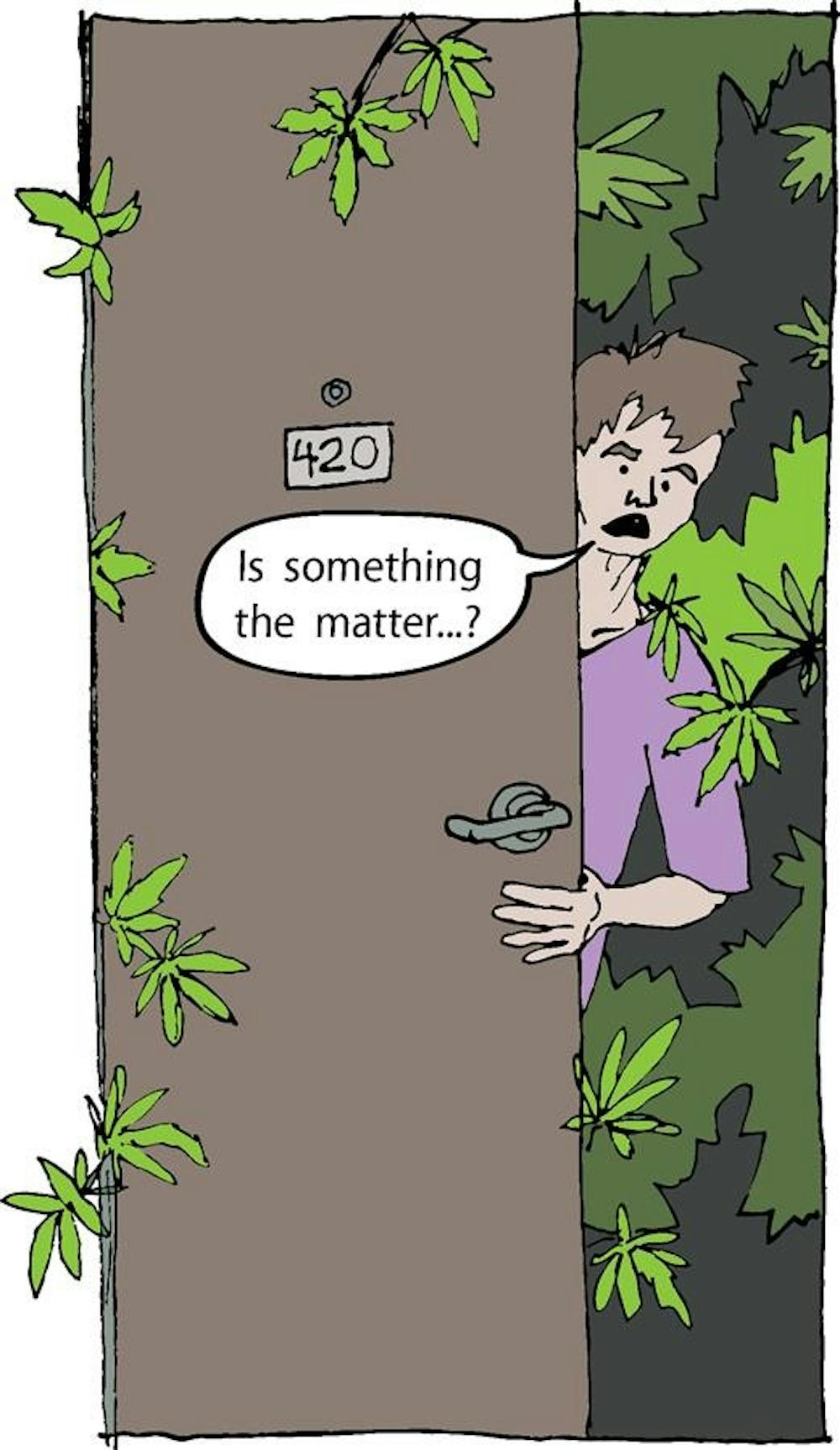Six feet of marijuana plant is difficult to hide, that much is clear.
Less clear are the implications from a drug bust on campus that later found itself in court.
Those who live in the IU dormitories are subject to all the rules and regulations in the A to Z Guide to Residence Hall & Furnished Apartment Living, provided to each of us living on campus at the beginning of the year.
But some of the implications from Medlock v. Trustees of Indiana University, the Seventh Circuit Court of Appeals case, may have chilling consequences.
Medlock lived in Willkie during spring 2011. As part of a health and safety
inspection conducted by the Resident Leadership Specialists in Willkie, the inspectors discovered marijuana related paraphernalia lying in plain view.
This is especially puzzling as Medlock had a full week’s notice to dispose of the
incriminating evidence.
The specialists contacted IUPD. Officer Christopher King responded to the summons and positively identified the cannabis paraphernalia. Further inspection by the specialists revealed a six-foot marijuana plant, upon which Officer King again concurred in their judgment.
Based on this evidence, a warrant was issued for Medlock’s arrest.
Medlock was suspended from the University for one year, after which he could reapply. He did, and was readmitted. However, he sought expungement of the arrest and expulsion from his record.
He claimed his Fourth Amendment and Fourteenth Amendment rights had been violated, as he was supposedly subject to an unreasonable search and was not given a hearing before he was expelled.
The U.S. Seventh District Court of Appeals wound up with the case and issued a decision on Dec. 31, 2013.
Judge Posner claimed the magnitude of the violations were so large IU was justified in taking “immediate remedial action if its commitment to its rules ... was not to be questioned.”
In other words, IU had to suspend Medlock immediately if the University wanted to maintain its reputable standing.
Medlock’s Fourth Amendment claim is also rather shocking in its boldness,
arguing the search itself was unconstitutional. But as he agreed to live in a dormitory, he accepted the right of IU to search his room given the terms as listed in the A to Z Guide. Thus, Judge Posner contended, IU simply held Medlock to his contract.
The Editorial Board holds this is a fair argument, but the more troubling issue at hand is Judge Posner’s view of the Fourth Amendment, and Title 42 of the U.S. Code Section 1983.
Also known as the Exclusionary Rule, it states evidence obtained in violation of the Fourth Amendment can be used in noncriminal proceedings.
This could set a troubling precedent, for those who are busted under evidence found not in accordance with the A to Z Guide or with the Fourth Amendment could be expelled.
Independently, the case also serves as reminder of the disruptive nature of outdated marijuana policy, and more importantly, its consequences on the students of IU.
With its power to conduct warrantless searches in campus housing reaffirmed, the University should continue to articulate the strict perimeters of when it will use this authority.
And though the scope of the violation in Medlock leaves little room for interpretation, the ability of IU’s judicial system to punish may serve as a harbinger for those who may be on the fence with their violations.
— opinion@idsnews.com
Follow the Editorial Board on Twitter
@IDS_Opinion.
Medlock v. IU Board of Trustees

Get stories like this in your inbox
Subscribe




